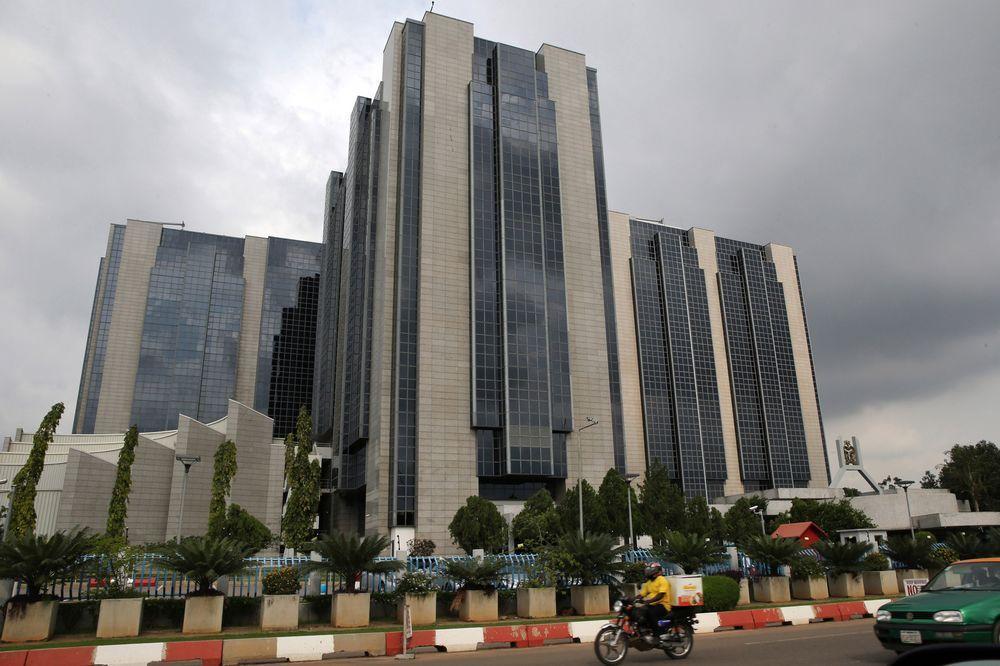Last Updated on June 21, 2025 by admin
The Nigerian banking sector plays a critical role in shaping the economic landscape of the nation. It serves as the cornerstone for economic development, providing essential financial services and acting as a catalyst for economic growth.
The sector’s evolution can be traced back to the establishment of the African Banking Corporation and the Bank of British West Africa in the late 19th century.
Since then, the banking industry in Nigeria has undergone significant changes, marked by periods of consolidation, reform, modernization, and adaptation to global financial standards.
Today, it encompasses a diverse range of financial institutions, including commercial banks, microfinance banks, development banks, and merchant banks, all regulated by the Central Bank of Nigeria. The banking sector facilitates the efficient allocation of resources and mobilizes savings for investment, bridging the gap between surplus and deficit economic units.
It also plays a pivotal role in implementing monetary policy, ensuring financial stability, and fostering innovation through the introduction of cutting-edge digital banking solutions.
Recent reforms have focused on enhancing the sector’s resilience, transparency, and ability to compete on a global scale, which has strengthened its capacity to support sectors critical to the nation’s economic priorities such as agriculture, infrastructure, and small and medium enterprises.
This transformative journey of the Nigerian banking sector underscores its indispensable contribution to economic stability and growth.
History of banking in Nigeria
TheHistory of Central Bank of Nigeria :Function and List of CBN Governors since 1958 traces back to the colonial era when the British established the first banking institutions to facilitate trade and commercial activities in the region.
The first bank, the African Banking Corporation, was established in 1892, followed by the Bank of British West Africa, now known as First Bank of Nigeria, in 1894. These early banks primarily served the needs of the colonial administration and expatriate communities, offering limited services to the local populace.
With Nigeria’s independence in 1960, there was a significant push to indigenize the banking sector, leading to the establishment of several indigenous banks.
The Nigerian government began to recognize the critical role banks could play in fostering economic development, leading to the implementation of banking reforms aimed at strengthening financial institutions and expanding access to credit for domestic enterprises.
Throughout the 1980s and 1990s, the Nigerian banking sector faced challenges such as instability, mismanagement, and a high incidence of non-performing loans.
In response, the government and regulatory authorities, such as the Central Bank of Nigeria, implemented major policy shifts and structural adjustments to stabilize the industry.
In the 21st century, with further reforms, including the consolidation wave of the mid-2000s, Nigerian banks have emerged stronger and more resilient, contributing significantly to the nation’s economic growth by supporting sectors like agriculture, small and medium enterprises, and infrastructure development.
Read: The Origin and History of Banking- Evolution of Bank in the world
The Economic Impact Of Banks In Nigeria
Banks play a pivotal role in shaping the economic landscape of Nigeria by acting as intermediaries between savers and borrowers, thus facilitating the flow of funds necessary for economic activities.
They provide the credit that businesses need to invest in new projects, expand operations, and ultimately create jobs, which drives economic growth. By offering various financial products and services, banks in Nigeria enable individuals to manage their finances effectively, promoting savings and investment.
Moreover, Nigerian banks significantly impact the economy through their participation in the payment system, ensuring smooth and efficient transactions for goods and services across the country.
They support entrepreneurship by offering financial services tailored to small and medium-sized enterprises (SMEs), which are vital for innovation and employment generation. Furthermore, Nigerian banks contribute to the country’s economic stability by implementing monetary policies in collaboration with the Central Bank of Nigeria, such as controlling inflation and stabilizing the national currency.
Also, banks are instrumental in attracting foreign direct investment by enhancing investor confidence through their robust regulatory frameworks and adherence to international banking standards.
Ultimately, the banking sector’s efforts in promoting financial inclusion play a substantial role in reducing poverty and fostering economic prosperity by integrating more Nigerians into the financial system, thus empowering them economically.
Read: History and Origin of Bank of England
Role Of Banks In Facilitating Economic Development
Banks play a crucial role in facilitating economic development in Nigeria by serving as the main intermediaries between savers and borrowers, thereby enabling the efficient allocation of resources.
They provide the financial infrastructure needed for both individuals and businesses to engage in economic activities, ensuring capital mobilization for investments. By accepting deposits and providing loans, banks help stimulate business expansion, increase production capacities, and generate employment opportunities, thereby driving economic growth.
Furthermore, banks in Nigeria support entrepreneurship by offering various credit products tailored to the needs of small and medium-sized enterprises (SMEs), which are vital for innovation and diversification of the economy.
Banks also facilitate trade by providing essential services such as letters of credit and trade financing, thereby boosting both domestic and international commerce.
They play a pivotal role in implementing monetary policy set by the Central Bank of Nigeria, using tools such as interest rates to influence economic activities like consumer spending and investment. Moreover, through technological advancements in banking services such as online banking, mobile payments, and e-wallets, banks enhance financial inclusion, bringing more Nigerians into the formal financial system.
This increased access to financial services empowers individuals and businesses, contributing to overall socioeconomic development. In doing so, banks help stabilize the financial system, reduce poverty, and promote sustainable economic development in Nigeria.
Challenges Facing The Nigerian Banking Industry
The Nigerian banking industry, integral to the country’s economic framework, faces numerous challenges that impact its efficiency and growth potential. One of the primary challenges is the issue of regulatory compliance.
The constantly evolving regulatory landscape requires banks to adapt swiftly, which can lead to increased operational costs and complexities. Furthermore, these regulatory requirements can sometimes stifle innovation within the sector, as banks focus on compliance rather than on developing new products and services.
Another significant challenge is the prevalence of non-performing loans (NPLs). High levels of NPLs burden the banking system, affecting profitability and limiting the capacity of banks to extend new credit.
This situation is exacerbated by economic instability, which can lead to defaults. The banking sector is also grappling with the challenge of financial inclusion. Despite efforts to reach the unbanked population, a significant portion of Nigerians still lacks access to banking services, which affects the overall economic growth.
Additionally, the Nigerian banking industry faces technological challenges. While digital banking presents opportunities for growth and efficiency, it also requires significant investment in technology infrastructure and skills development.
Cybersecurity threats are an ongoing concern as banks strive to protect their systems and customer information.
Lastly, macroeconomic factors such as inflation and currency fluctuations pose significant risks, affecting the banks’ operations and the broader economy.
The Future Of Banking In Nigeria’s Economy
The future of banking in Nigeria’s economy is poised for significant transformation, driven by technological advancements, regulatory changes, and evolving consumer expectations.
As digitalization becomes central to banking operations, financial institutions are expected to enhance their IT infrastructure to support innovative services such as mobile banking, e-payment solutions, and blockchain technology.
The increasing penetration of smartphones and internet connectivity will further facilitate this digital shift, enabling banks to reach a broader customer base, including the unbanked population in remote areas.
Moreover, the advent of fintech companies is reshaping the competitive landscape of the banking sector in Nigeria. These agile, tech-driven entities are introducing more personalized and cost-effective financial solutions, compelling traditional banks to rethink and innovate their service delivery models.
Partnerships between banks and fintechs are anticipated to become more common, leveraging the strengths of both to enhance product offerings and drive financial inclusion.
Regulatory reforms and initiatives by the Central Bank of Nigeria will likely continue to play a crucial role in shaping the future of the banking industry.
Policies aimed at improving financial stability, encouraging investment in technology, and protecting consumer rights will be vital. As Nigeria’s economy seeks sustained growth, the banking sector will remain central, adapting to new trends and ensuring efficiency, transparency, and financial inclusion are prioritized.
Also read: 11 Best Online Loan Apps In Nigeria to get instant loan
Conclusion
Nigerian banks have contributed tremendously to the growth of the Nigeria’s economy by supporting startups and private sector businesses. While unemployment rate in Nigeria is high, the sector has employed considerably a large chunk. Unemployment rate would have been a bit low if other sectors playing in the economy have employed as much too.
- List of 9mobile/etisalat data Plan and subscription code - January 27, 2026
- How to buy data, Request and gift dataon Airtel - January 26, 2026
- How to buy Glo data plan and cancel data Renewal - January 24, 2026










